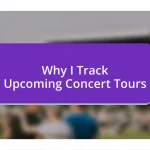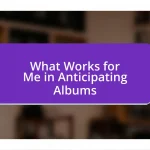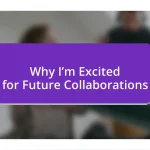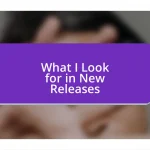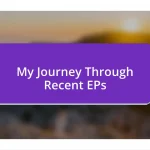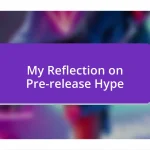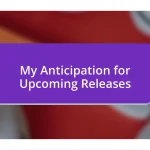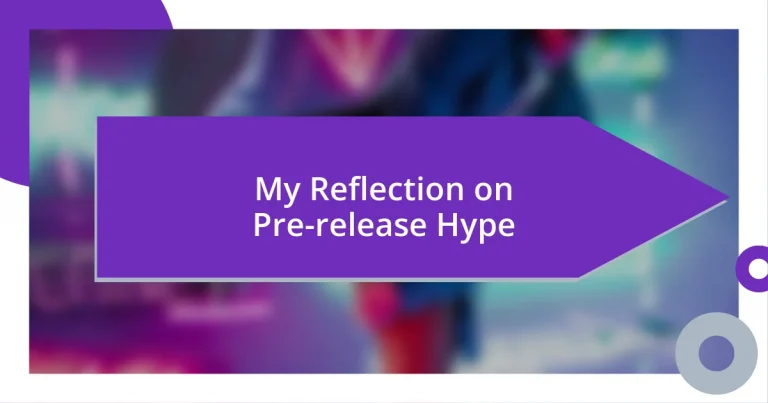Key takeaways:
- Pre-release hype creates a communal emotional experience, blending excitement and anxiety, influencing how consumers anticipate and assess a product.
- Key psychological factors include social proof, FOMO, and cognitive dissonance, which drive consumer engagement and expectations surrounding a release.
- Effective marketing strategies utilize social media, exclusivity, and influencer partnerships to amplify excitement, while managing expectations can enhance overall satisfaction and reduce disappointment.
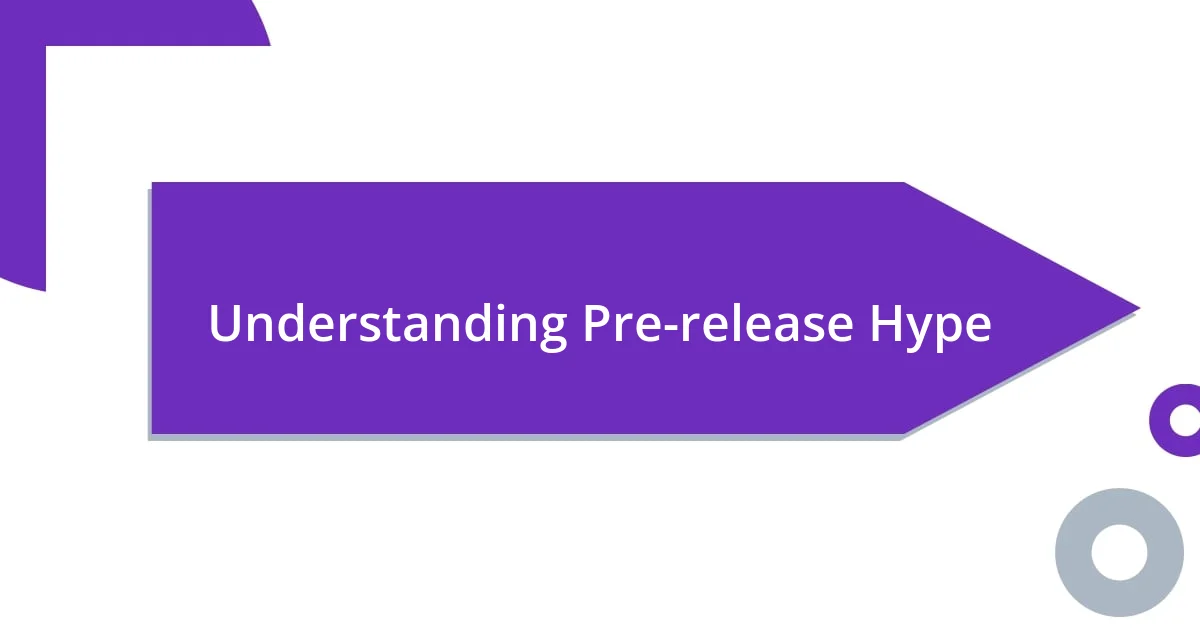
Understanding Pre-release Hype
Pre-release hype is fascinating because it taps into our collective excitement and anticipation. I remember eagerly awaiting a game’s launch, checking every social media post and trailer. It’s like being part of a community where everyone shares the same zeal—don’t you feel that rush when you see others buzzing about something you love?
At its core, pre-release hype builds a bridge between creators and their audience. It’s an emotional rollercoaster, full of speculation and hope. I often find myself analyzing every teaser, wondering if the final product will live up to the expectations. Have you ever felt a twinge of anxiety about something you’re excited about? That mix of excitement and fear is precisely what makes this hype so compelling.
What intrigues me most is how this build-up often sets the stage for eventual satisfaction or disappointment. I’ve had experiences where the wait culminated in pure joy—think of a sequel you’ve been waiting for that exceeds your hopes. But then there are times when the product falls short, leaving a bitter taste. How do we reconcile those feelings? It’s something every enthusiast grapples with, and it’s why understanding pre-release hype is so crucial to truly appreciating the final experience.
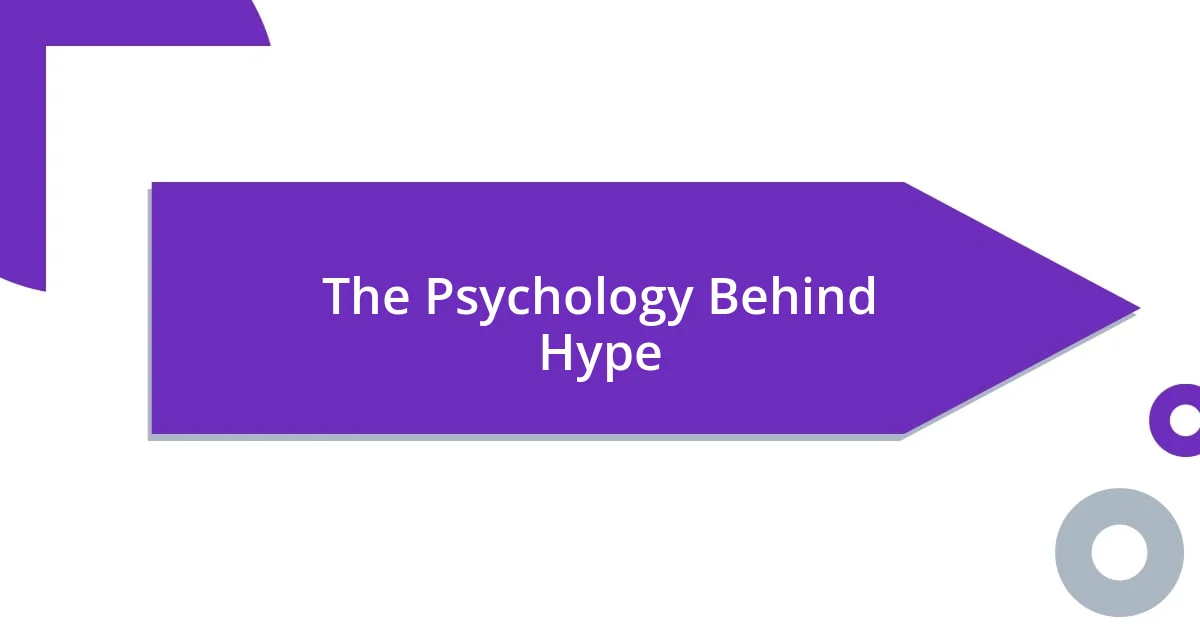
The Psychology Behind Hype
The psychology behind hype is a compelling mix of emotions and social dynamics. I find it fascinating how anticipation can create a sense of belonging among fans. When I first saw a teaser for a highly-anticipated film, I felt an immediate bond with others who were sharing theories online. It’s almost as if we were in a secret club, united by our hopes and dreams for the narrative.
- Social Proof: When people see others excited, they often feel compelled to join in, amplifying the frenzy.
- Fear of Missing Out (FOMO): The pressure of being left out drives people to engage with the hype, fearing they might miss something trendsetting.
- Cognitive Dissonance: The gap between what is being promised and what we experience later can create internal conflict, feeding both our excitement and disappointment.
In my experience, this blend of feelings often leads to a heightened state of awareness. I watch every announcement, read every rumor, and fantasize about what the final product will be like. It’s this emotional investment that makes the eventual reveal so intense—though I often find myself grappling with the outcome, whether it fulfilled my soaring expectations or left me longing for more.
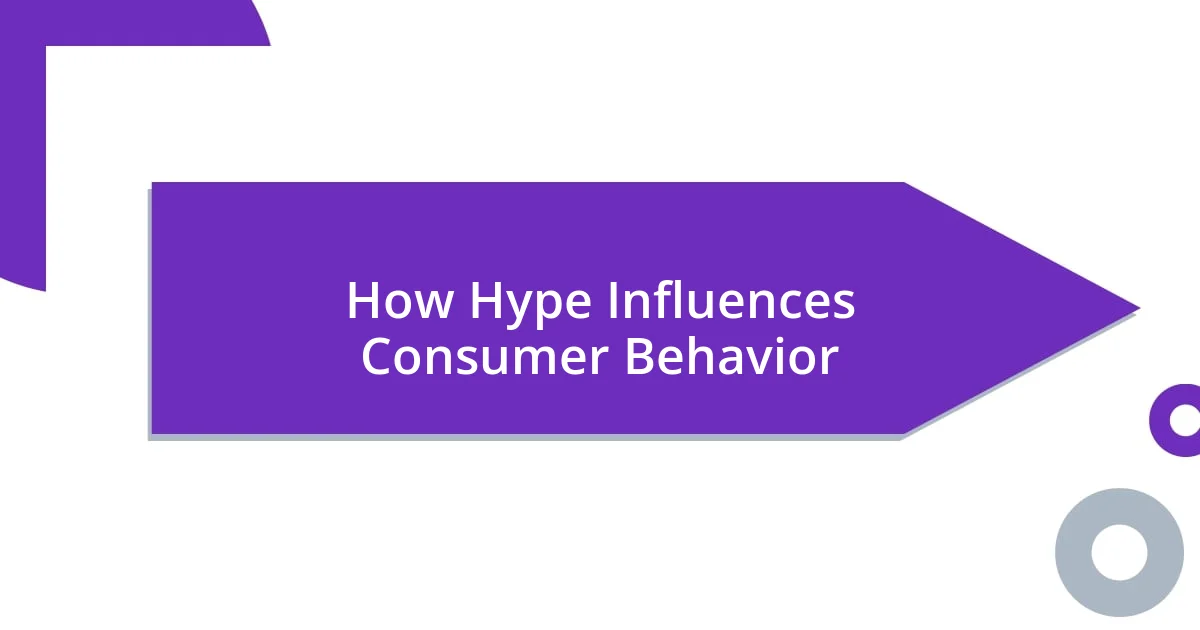
How Hype Influences Consumer Behavior
Understanding how hype influences consumer behavior reveals some intriguing patterns. For instance, I recall stepping into a game store on release day, surrounded by people buzzing with excitement. That shared energy was contagious! Seeing others clutching their pre-ordered copies made me feel even more thrilled about my own purchase. It’s quantifiable: studies show that when consumers see others engaged in hype, they’re more inclined to participate. It fosters a community mindset, pushing individuals towards shared consumption experiences.
There’s also the psychological element of anticipation. I often find myself daydreaming about experiences that are still months away. During this time, our brains release dopamine, that “feel-good” neurotransmitter, making us crave more information. This cycle can create a powerful influence over the decision-making process, sometimes pulling us into a buying frenzy based on what we see online or hear from our friends. I remember when I couldn’t stop checking social media updates for a film I was anticipating—I was practically holding my breath for any snippets of information.
Interestingly, the tension between expectation and reality can shape consumer satisfaction significantly. I once bought a concert ticket that I had hyped up for months. The day arrived, and while I was excited, the event did not live up to the atmosphere I had imagined. This disconnect happens frequently, leaving consumers feeling let down despite the initial hype. It raises an essential question: How do we navigate the line between excitement and expectation?
| Influence Factors | Examples |
|---|---|
| Social Proof | Seeing others excited boosts my own excitement |
| FOMO | The urge to join in and not miss out on trends |
| Anticipation | Dopamine release as I await upcoming releases |
| Cognitive Dissonance | The clash between hype and final experience |
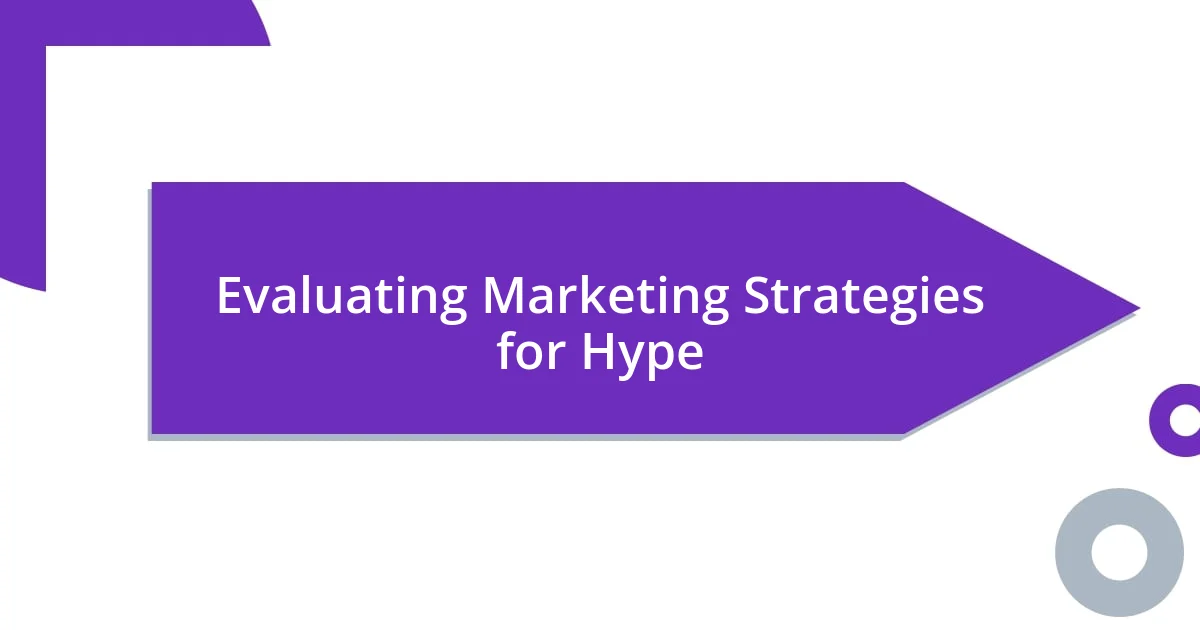
Evaluating Marketing Strategies for Hype
In evaluating marketing strategies for hype, it’s striking how effective social media campaigns can build enormous excitement. I remember waiting for a game release that was teased through a series of clever tweets and cryptic images. Each post felt like a breadcrumb leading to the big reveal, pulling me and countless others into a whirlwind of anticipation. It really made me think: how does the digital realm amplify our excitement compared to traditional marketing?
Another perspective lies in the power of exclusive content. During a recent movie marketing campaign, I was captivated by behind-the-scenes footage only available to early subscribers. This tactic created a sense of privilege among fans—being part of an elite group fueled my enthusiasm even more. It’s interesting how exclusivity makes people feel valued; have you ever felt that rush when you gain access to something others don’t?
Lastly, I think about the role of influencer partnerships in generating hype. I followed a well-known content creator who passionately shared their thoughts on an upcoming product. Their excitement was infectious and made me reflect: does seeing someone I admire genuinely rave about something boost my desire to buy it? For me, the answer is a resounding yes. I often find myself clicking “add to cart” simply because I trust their opinion. In a world full of choices, who we listen to can profoundly shape our buying behavior.
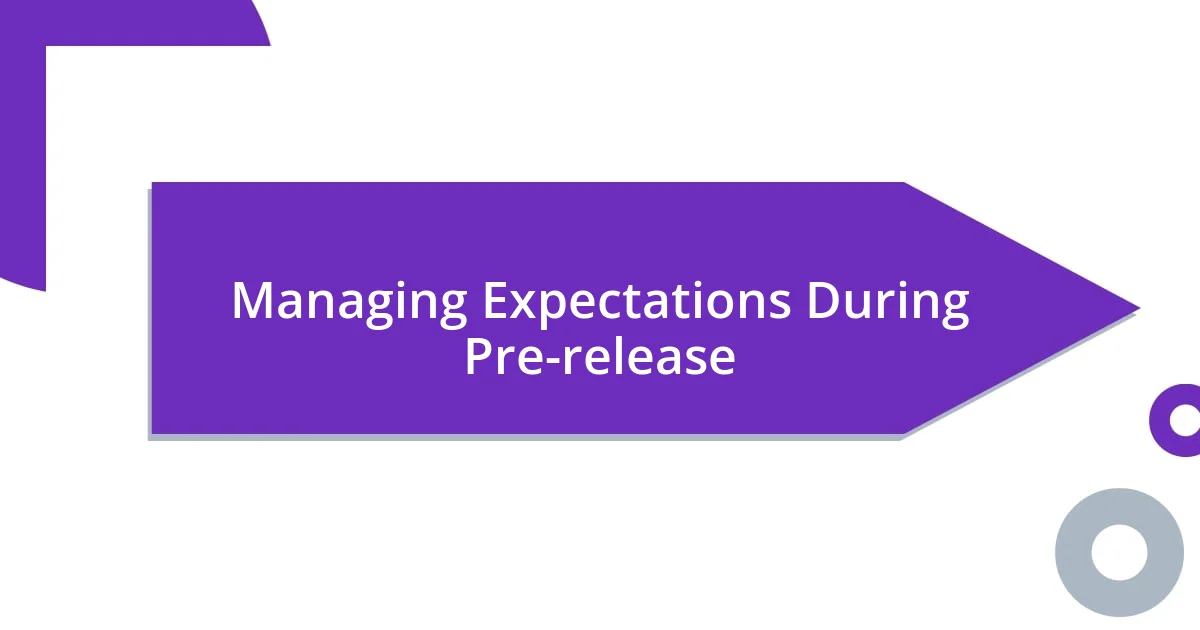
Managing Expectations During Pre-release
Managing expectations during pre-release can be a delicate dance. I remember eagerly counting down the days to a highly anticipated game, only to be met with a final product that didn’t quite deliver on my lofty expectations. This experience left me wondering: how often do we allow our excitement to overshadow the reality of what we might receive? Recognizing the gap between hype and actual experience can be crucial to avoiding disappointment.
A strategy that helps me keep my expectations in check is focusing on the details shared during marketing. I try to sift through the overwhelming noise of enthusiastic posts and trailers, seeking specific features that genuinely pique my interest. For example, when a movie I was excited about hyped its innovative storyline, I made a point to evaluate whether it aligned with what I typically enjoy. This method not only bolstered my anticipation but kept it grounded in a reality I could trust.
I’ve also learned the value of tempering excitement with patience. Waiting a week after a release allows me to read reviews and hear real feedback from fans. I recall when I chose to hold back from rushing to see a blockbuster premiere. Instead, I spent time absorbing community perspectives, which ultimately led me to a more fulfilling viewing experience. So, how do you manage your expectations? Embracing a more measured approach has genuinely enhanced my enjoyment of new releases, turning hype into genuine satisfaction.
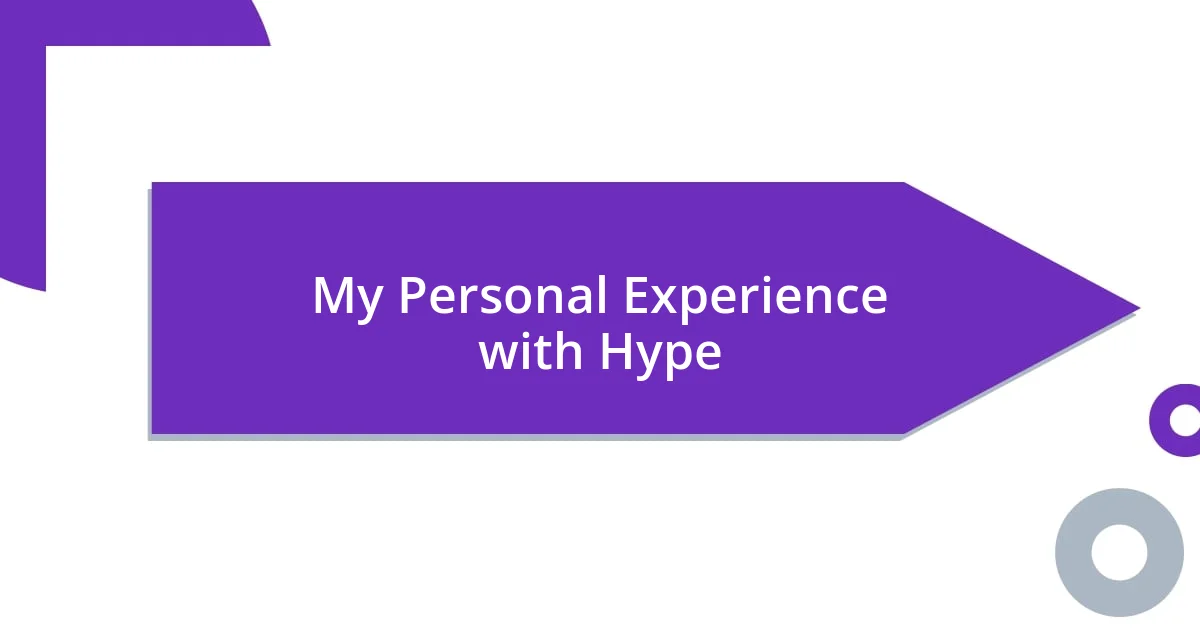
My Personal Experience with Hype
My experience with hype often feels like riding a roller coaster of emotions. I vividly recall the frenzy surrounding a popular phone launch. Friends and I exchanged memes and speculated on features, each teaser from the company igniting conversations long into the night. That excitement wasn’t just about the product; it became a shared experience, binding us closer together in our collective anticipation. But, I wonder—does the community aspect of hype amplify our feelings of enthusiasm?
Sometimes, the hype can lead to unexpected disappointments. I once pre-ordered a much-anticipated collectible figure that the creators had promoted as a “must-have.” When it finally arrived, it was smaller and less detailed than advertised, leaving me feeling let down. It made me reflect on how easily the enthusiasm can blur our judgment. Have you ever felt the sting of disappointment after the hype dimmed your expectations?
Despite the occasional letdown, I can’t deny that hype can also spark genuine joy. For instance, the build-up to a concert from my favorite band had me on edge for months. The air was electric with excitement as the date drew closer, and when I finally experienced the event, it was everything I had hoped for and more. That perfect blend of anticipation and fulfillment left me wondering: can the power of hype sometimes enhance our experiences rather than tarnish them?
